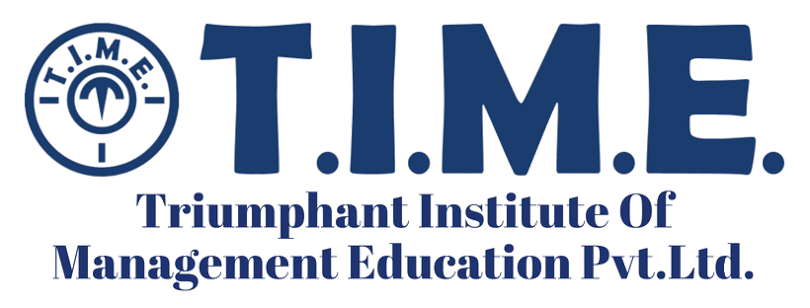Welcome to SRV Taxcon
SRV Taxcon is an emerging brand in Taxation and Accounting Consulting, specializing in services for start-up businesses.
We offer a single-window solution for Registration and License:
- Our in-house team handles over 50 types of business licenses.
- We provide end-to-end services across India.
- Ensuring smooth and continuous adherence to all legal.
10000+
Happy Clients
3500+
Expert Advisors
50+
Branch Offices
Free Consultation by Expert
Certification
- Home
- All Services
- Certification II
Get an Appointment
- ISO Certification
- CE Certification
- NSIC Registration
- Digital signature Class -3
- Digital Signature-DGFT
ISO Certification
Benefits of ISO Certification
Builds customer trust with globally recognized standards
Enhances efficiency, productivity, and performance
Facilitates global trade and export eligibility
Helps in government tender qualifications
Promotes regulatory compliance and risk management
Increases employee engagement and process clarity
Applicability
ISO Certification is suitable for:
Manufacturing units and factories
IT and software service providers
Healthcare, hospitality, and education sectors
Startups, MSMEs, and large corporations
NGOs and other service-based organizations
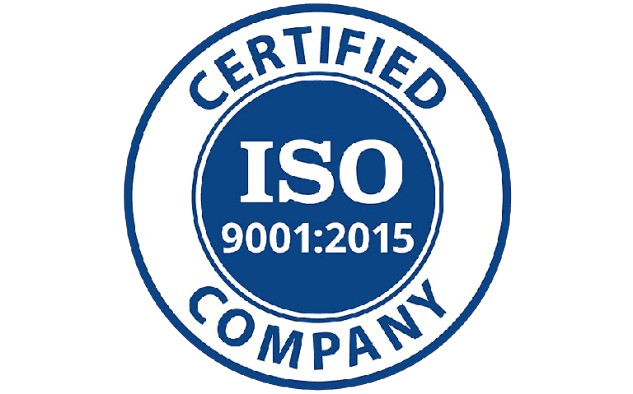

Process
Gap Analysis & Standard Selection
Identify the most suitable ISO standard and assess current business processes.Documentation & Implementation
Develop required manuals, procedures, and implement ISO-compliant systems.Internal Audit
Conduct an internal review to ensure all processes meet the ISO requirements.External Audit & Certification
Coordinate with a certification body for final auditing and issuance of ISO Certificate.
Common ISO Standards We Help With
ISO 9001 – Quality Management System
ISO 14001 – Environmental Management System
ISO 27001 – Information Security Management
ISO 22000 – Food Safety Management System
ISO 45001 – Occupational Health & Safety
ISO 13485 – Medical Devices Quality Management
Other industry-specific ISO standards as required

Documents Required
PAN and GST of the organization
Business registration proof (Company, LLP, Partnership, etc.)
Scope of work and nature of business
Organization chart and process flow
Address proof and utility bill
Existing policy documents (if any)


What You’ll Get
ISO Certificate from an accredited certification body
Complete support in audit, documentation, and implementation
Guidance for annual surveillance audits
Enhanced reputation and compliance readiness
Ongoing advisory for process improvement and renewals
Frequently Asked Questions
Have a look at the answers to the most asked questions
No, but it is often required for tenders, global trade, and business credibility.
Usually 3 years, subject to annual surveillance audits.
Yes, even startups and small businesses can benefit significantly from ISO Certification.
It depends on the type of ISO standard, business size, and process complexity.
We assist in corrective action planning and help your business qualify in re-audit.

CF Certification
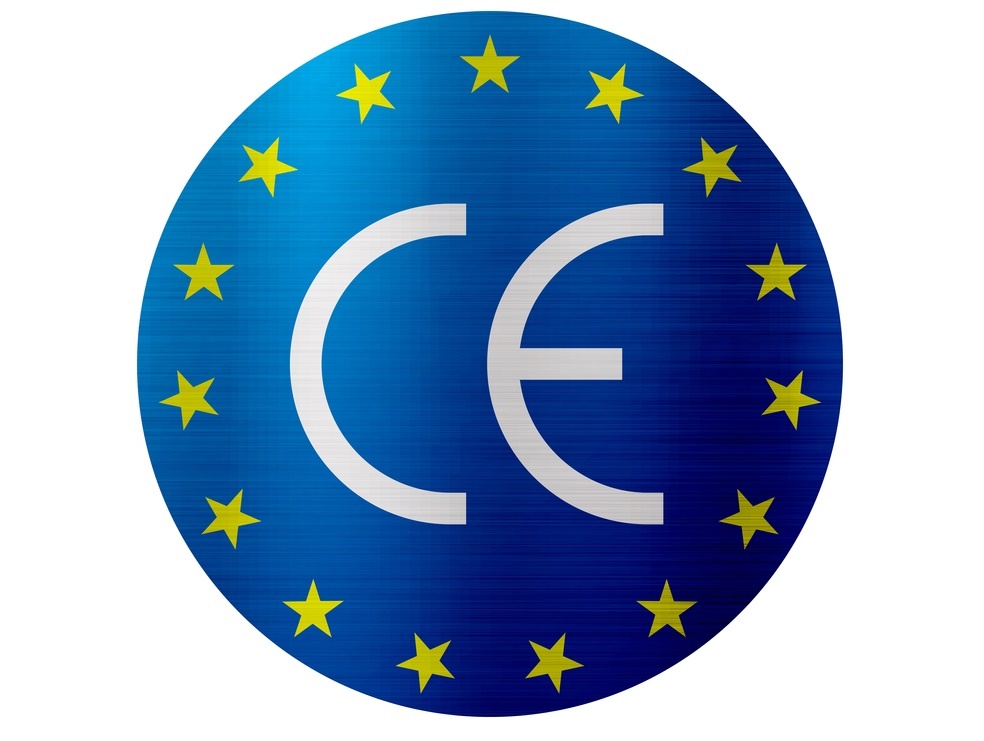
Benefits of CE Certification
- Legal access to the European Economic Area market.
- Demonstrates product safety and quality to consumers.
- Facilitates smoother customs procedures within the EEA.
- Builds trust and credibility for your brand.
- Ensures compliance with European regulations.
Eligibility
- Applies to a wide range of products intended for sale in the EEA.
- Specific product categories are covered by different EU directives (e.g., machinery, electrical equipment, toys).
- Manufacturers (or their authorized representatives) are responsible for ensuring compliance.
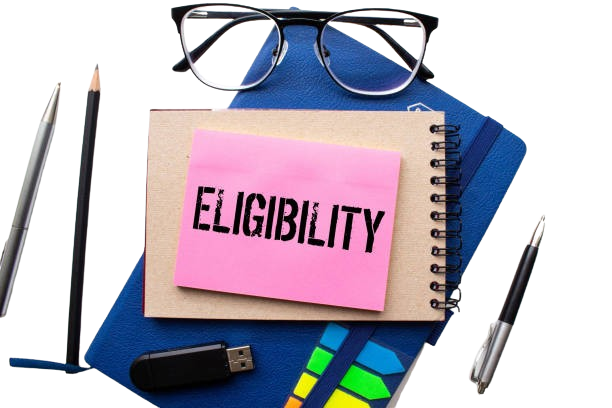

Certification Process
- Identify Applicable Directives: Determine which EU directives apply to your specific product.
- Assess Conformity: Evaluate the product’s compliance with the essential requirements of the applicable directives. This may involve testing and risk assessments.
- Prepare Technical Documentation: Compile all necessary technical information about the product’s design, manufacture, and operation.
- Issue Declaration of Conformity: The manufacturer drafts and signs a legal declaration stating the product meets all relevant requirements.
- Affix CE Marking: Once compliant, the CE marking is visibly affixed to the product.
Documents Required
- Technical documentation (design drawings, specifications, test reports)
- Declaration of Conformity (a legal document stating the product meets the applicable directives)
- Risk assessment reports
- User manuals and safety instructions
- Potentially, reports from notified bodies (independent assessment organizations)

Frequently Asked Questions
Have a look at the answers to the most asked questions
CE marking indicates that a product conforms to the essential health, safety, and environmental protection standards for products sold within the European Economic Area (EEA).
A wide range of products intended for sale in the EEA require CE marking. Specific categories are covered by various EU directives, such as electrical equipment, machinery, toys, and more.
The manufacturer (or their authorized representative) is responsible for ensuring that their product meets the requirements of the applicable EU directives and for affixing the CE marking.
The process typically includes identifying applicable directives, assessing the product’s conformity, preparing technical documentation, issuing a Declaration of Conformity, and finally, affixing the CE marking to the product.
CE certification grants legal access to the EEA market, demonstrates product safety and quality, simplifies customs processes, enhances brand trust, and ensures compliance with European regulations.

NSIC Registration

Benefits of NSIC Registration
Exemption from Earnest Money Deposit (EMD) in government tenders.
Free issuance of tender documents, reducing procurement costs.
Priority in government purchases, with a minimum of 25% procurement reserved for MSEs.
Price preference: MSEs quoting within L1+15% are eligible to match L1 price and secure orders up to 25% of the tendered quantity.
Increased visibility through inclusion in the NSIC database, accessed by various government departments and PSUs.
Applicability
NSIC Registration is applicable to:
Micro and Small Enterprises (MSEs): Entities engaged in manufacturing or service activities, registered under the MSME Act.
Enterprises with Udyam Registration: MSEs possessing a valid Udyam Registration Certificate.
Businesses with a Minimum of One Year of Operations: Enterprises that have been operational for at least one year and have completed their first financial year.

Process
Eligibility Assessment: Evaluate the enterprise’s eligibility based on its MSME status and operational history.
Document Preparation: Gather necessary documents, including financial statements, Udyam Registration Certificate, and other relevant records.
Application Submission: Complete and submit the NSIC registration application through the official portal.
Inspection and Verification: NSIC conducts a technical inspection of the enterprise’s operations and verifies the submitted documents.
Issuance of NSIC Certificate: Upon successful verification, NSIC issues the registration certificate, valid for two years.
Documents Required
Udyam Registration Certificate
Business PAN Card
GST Registration Certificate
Audited Financial Statements for the Last Three Years
Bank Statements for the Last Six Months
Details of Plant and Machinery
List of Products/Services Offered
Proof of Business Address
Quality Certifications (if any)

Frequently Asked Questions
Have a look at the answers to the most asked questions
While not mandatory, NSIC registration provides significant benefits, including EMD exemption and price preference, making it advantageous for MSEs in government procurement.
The NSIC registration certificate is valid for two years and can be renewed upon expiry.
Yes, enterprises that have commenced commercial production but have not completed one year can apply for Provisional Registration, valid for one year with a monetary limit of ₹5 lakhs.
Yes, NSIC charges a registration fee based on the enterprise’s turnover and other criteria. The fee structure is available on the NSIC website.
NSIC registration offers benefits like EMD exemption, free tender document issuance, and price preference, enhancing MSEs’ competitiveness in government tenders.

Digital Signature Class -3
Benefits of Digital Signature Class-3
- High level of security and legal validity.
- Used for MCA (Ministry of Corporate Affairs) filings, GST filings, Income Tax e-filing, e-tendering, and other secure online transactions.
- Ensures authenticity and integrity of digital documents.
- Prevents forgery and tampering.
- Facilitates secure communication and online dealings.
Eligibility
- Individuals
- Organizations (including companies, partnerships, and government entities)
- Requires physical verification by the Certifying Authority.
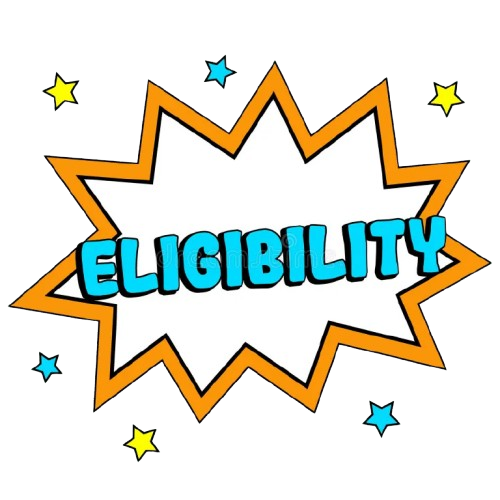

Obtaining a Class-3 Digital Signature
- Choose a Certifying Authority (CA): Select a licensed CA authorized to issue DSCs in India.
- Submit Application: Fill out the application form online or offline.
- Provide Documents: Submit the required self-attested documents.
- Complete Verification: Undergo a physical verification process as mandated for Class-3 DSCs. This may involve in-person verification or video verification.
- Receive DSC: Upon successful verification, the CA will issue the Digital Signature Certificate, usually stored on a USB token.
Documents Required
Documents Required (for Individuals)
- Identity Proof (e.g., Passport, PAN card, Driver’s License, Voter ID)
- Address Proof (e.g., Aadhaar card, Voter ID, Utility Bill, Bank Statement)
- Passport-sized photograph
- Application form (provided by the CA)
Documents Required (for Organizations)
- Organizational identity proof (e.g., Certificate of Incorporation, Partnership Deed)
- Address proof of the organization
- Identity and address proof of the authorized signatory
- Authorization letter from the organization
- Application form (provided by the CA)

Frequently Asked Questions
Have a look at the answers to the most asked questions
A Class-3 DSC is a highly secure electronic signature used for online transactions requiring a high level of trust and authentication. It verifies the signer’s identity and ensures document integrity.
Individuals and organizations can obtain a Class-3 DSC. However, it requires a more stringent physical verification process compared to lower classes of DSCs.
For individuals, this usually includes identity proof, address proof, and a photograph. For organizations, it involves organizational identity and address proof, along with details and authorization of the signatory.
The process involves choosing a Certifying Authority, submitting an application with required documents, undergoing a mandatory physical (or video) verification, and receiving the DSC on a USB token upon successful verification.
Class-3 DSCs are widely used for secure online transactions such as MCA filings, GST returns, Income Tax e-filing, e-tendering, and other platforms where high security and legal validity are essential.

DigitalSignature -DGFT
Benefits of a DGFT Digital Signature
- Mandatory for various online transactions with the Directorate General of Foreign Trade.
- Facilitates online application for import/export licenses and permits.
- Enables secure electronic submission of documents to the DGFT.
- Streamlines foreign trade procedures and reduces paperwork.
- Ensures authenticity and integrity of all digital communications with the DGFT.
Eligibility
- Exporters
- Importers
- Individuals authorized to act on behalf of exporting/importing organizations.

Obtaining a DGFT Digital Signature
- Choose a Certifying Authority (CA): Select a CA authorized to issue DSCs for DGFT purposes.
- Submit Application: Fill out the specific DGFT DSC application form (online or offline).
- Provide Documents: Submit self-attested copies of the required documents, including the IEC certificate.
- Complete Verification: Undergo the necessary verification process, which for DGFT often aligns with the Class-3 standards, potentially involving physical or video verification.
- Receive DSC: Upon successful verification, the CA will issue the Digital Signature Certificate, usually provided on a USB token. Ensure the DSC is compatible with the DGFT portal requirements.
Documents Required (for Individuals/Organizations
- Identity Proof: PAN card (mandatory), Passport, Driver’s License, Voter ID.
- Address Proof: Aadhaar card, Voter ID, Utility Bill, Bank Statement, Passport.
- IEC (Import-Export Code) Certificate: Copy of the IEC issued by DGFT.
- Organizational Documents (if applicable): Certificate of Incorporation, Partnership Deed, etc.
- Authorization Letter (if applicable): Letter authorizing the individual to act on behalf of the organization for DGFT related matters.
- Passport-sized photograph of the applicant.
- Application form (provided by the Certifying Authority).

Frequently Asked Questions
Have a look at the answers to the most asked questions
A DGFT Digital Signature Certificate is a specific type of DSC required for exporters and importers to conduct online transactions with the Directorate General of Foreign Trade (DGFT) in India.
Exporters, importers, and authorized individuals acting on behalf of these organizations need a DGFT DSC to engage in online processes with the DGFT.
Typically, you’ll need identity proof (PAN is mandatory), address proof, a copy of the IEC certificate, organizational documents (if applicable), an authorization letter (if applicable), and a photograph.
The process involves selecting an authorized Certifying Authority, filling out the DGFT DSC application, submitting the required documents (including the IEC), undergoing verification, and receiving the DSC on a USB token.
A Digital Signature is mandatory for secure online transactions with the DGFT, such as applying for licenses and submitting documents electronically. It ensures the authenticity and integrity of these digital interactions, streamlining foreign trade procedures.


Why is Company Registration Required?
Company registration is a process that gives legal status to a business and establishes its identity, separate from its owners. It boosts the organization’s credibility, making it easier to gain the trust of the customers, suppliers and investors. It also opens the gateway to secure funding and facilitates protecting intellectual property rights. Company registration in India guarantees perpetual succession, enabling the business to operate beyond the founders’ participation. Registering a business is a step that gives the company a formal and legal standing, helps in its expansion and provides financial stability.
Advantages of Registering a Company
Limited Liability Protection
One of the most important benefits of a private limited company is that it offers limited liability protection.
Limited Liability Protection
One of the most important benefits of a private limited company is that it offers limited liability protection.
Limited Liability Protection
One of the most important benefits of a private limited company is that it offers limited liability protection.
Limited Liability Protection
One of the most important benefits of a private limited company is that it offers limited liability protection.
What are the Eligibility Criteria for Company Registration?
According to the Ministry of Corporate Affairs, the eligibility criteria to register a company in India includes the following:
Checklist for the Private Limited Company:
- A minimum of two shareholders. Maximum number of shareholders can be 200.
- A minimum of two directors, one of whom must be a resident of India.
- The selected company name must be unique and should not appear similar to an existing business.
- The Registrar of Companies (ROC) must approve the proposed company name.
- Have an official company address.
- A valid Goods and Services Tax (GST) number.
- Should register with the Employee Provident Fund (EPF) department.
- Should register with the Professional Tax department (if applicable).
- Legal and regulatory compliance is a must—maintaining books of accounts, holding annual general meetings, filing annual returns with the ROC, etc.
- The company should not be involved in any illegal activity per Indian law.


What are the Eligibility Criteria for Company Registration?
According to the Ministry of Corporate Affairs, the eligibility criteria to register a company in India includes the following:
Checklist for the Private Limited Company:
- A minimum of two shareholders. Maximum number of shareholders can be 200.
- A minimum of two directors, one of whom must be a resident of India.
- The selected company name must be unique and should not appear similar to an existing business.
- The Registrar of Companies (ROC) must approve the proposed company name.
- Have an official company address.
Post-Registration Compliance for Company Registration
Post-registration compliance for a private limited company includes various the adherence of legal and regulatory requirements including:
LLP Registration
Simplify your business setup with SRV Taxcon’s expert LLP Registration services.
GST Registration
Ensure your business is GST compliant with SRV Taxcon’s hassle-free GST Registration services.
MSME Registration
Empower your business with SRV Taxcon’s MSME Registration services and get recognized as a Micro, Small.
LLP Registration
Simplify your business setup with SRV Taxcon’s expert LLP Registration services.
GST Registration
Ensure your business is GST compliant with SRV Taxcon’s hassle-free GST Registration services.
MSME Registration
Empower your business with SRV Taxcon’s MSME Registration services and get recognized as a Micro, Small.
Features of a Private Limited Company
A private limited company is one of the most popular forms of business structures in India for its distinct characteristic features, including:

- A minimum of two shareholders. Maximum number of shareholders can be 200.
- A minimum of two directors, one of whom must be a resident of India.
- The selected company name must be unique and should not appear similar to an existing business.
- The Registrar of Companies (ROC) must approve the proposed company name.
- The Registrar of Companies (ROC) must approve the proposed company name.
- Have an official company address.
- Have an official company address.
- The Registrar of Companies (ROC) must approve the proposed company name.
- Have an official company address.
Choose your plan. No hiddden charge!
Pricing Plan
STARTER
$28
- 50GB Bandwidth
- Business & Finance Analysing
- 24 hour support
- Customer Managemet
- 2 Emails Acounts
STARTER
$28
- 50GB Bandwidth
- Business & Finance Analysing
- 24 hour support
- Customer Managemet
- 2 Emails Acounts
STARTER
$28
- 50GB Bandwidth
- Business & Finance Analysing
- 24 hour support
- Customer Managemet
- 2 Emails Acounts
Frequently Asked Questions
Have a look at the answers to the most asked questions

The procedure for incorporating a company requires DSC & DIN for directors, a unique company name, filing of incorporation documents, and getting a company registration certificate.
The procedure for incorporating a company requires DSC & DIN for directors, a unique company name, filing of incorporation documents, and getting a company registration certificate.
The procedure for incorporating a company requires DSC & DIN for directors, a unique company name, filing of incorporation documents, and getting a company registration certificate.
The procedure for incorporating a company requires DSC & DIN for directors, a unique company name, filing of incorporation documents, and getting a company registration certificate.
The procedure for incorporating a company requires DSC & DIN for directors, a unique company name, filing of incorporation documents, and getting a company registration certificate.
Client Testimonials
“Words from happy clients who chose us with confidence”
Product Manager
Rajeev S.
Frontend Team Lead
Emily D.
Backend Engineer,
Ahmed K.
CTO, TechNova
Sophia R.
Full Stack Developer
John M.
Latest News

EPR Authorization for E-Waste and P-Waste: A Complete Guide
Starting a new business is exciting—but overlooking the legal groundwork can cost you dearly in the long run……..

Top Legal Registrations Every Indian Startup Needs
Starting a new business is exciting—but overlooking the legal groundwork can cost you dearly in the long run……..

Why Every Growing Business Needs a Virtual CFO
In today’s competitive business environment, strategic financial management isn’t just for large enterprises……
Our Clients








